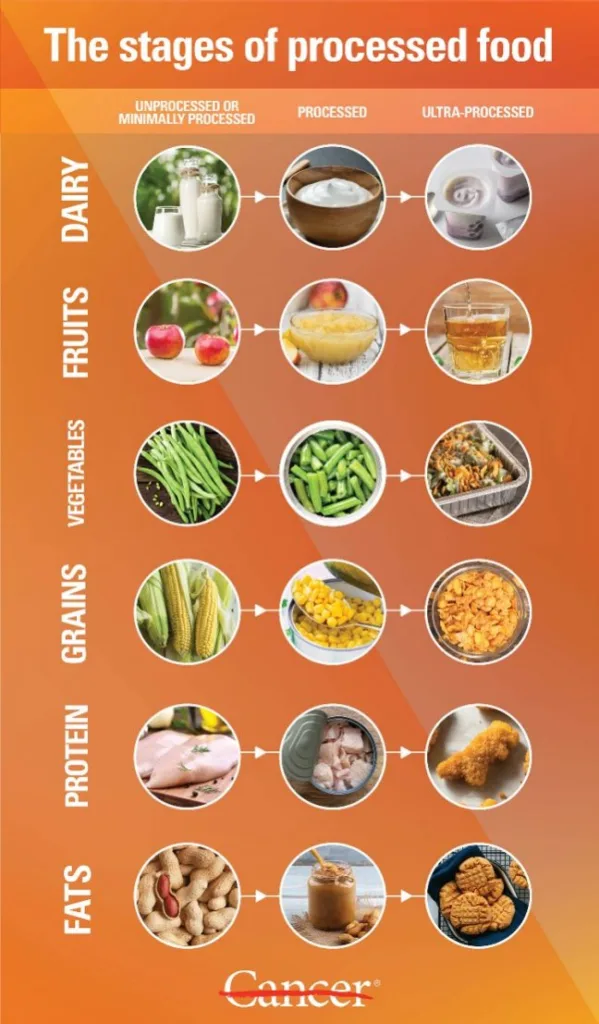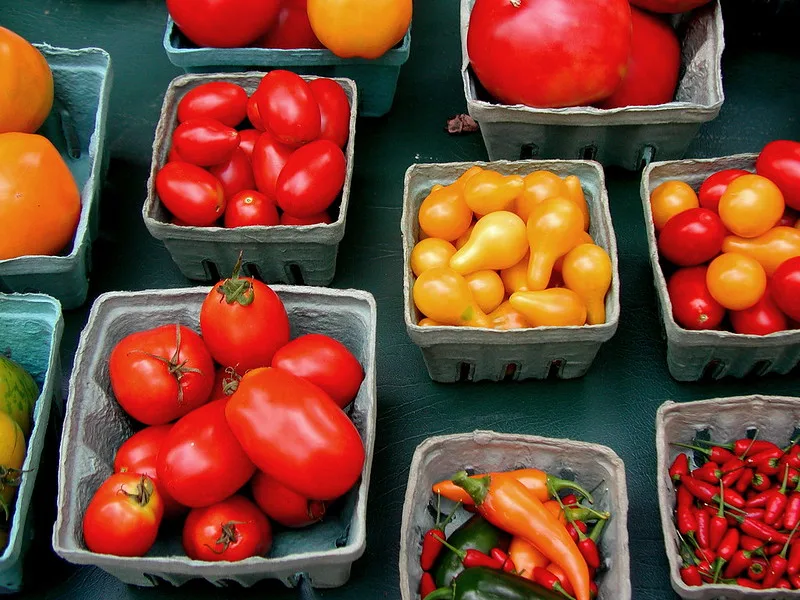Did you know that nearly 1 in 3 Gen Zers struggle with anxiety or depression? 🧠💔 Did you also know that a plant-based diet might be able to help? If you’re anything like me, you’ve probably had moments when everything—from school to social media—just felt like too much. For me, it was the constant pressure of trying to balance assignments with staying connected online, and eventually, I started feeling burnt out. That’s when I stumbled upon something surprising: what I was eating might actually be playing a part in how I was feeling. 😮
After doing some research (and a bit of trial and error), I learned that a plant-based diet could be the mental health boost I needed. 🌱✨ And honestly, after trying it, I started to notice the difference. Not just in how I looked, but in how I felt—from being less stressed to getting more restful sleep. So, let’s dive into how this works, focusing on key nutrients like folate, magnesium, and omega-3 fatty acids—and how they can help you feel better from the inside out*.
Table of contents
🌱 The Lowdown on Diet and Mental Health
Before we spill the details on a plant-based diet, let’s talk about why your food choices are big mood. What you eat literally affects how your brain works. Nutrients from whole, plant-based foods can boost brain health, improve your mood, and help fight stress (Medical News Today, 2020). Think of it as mental health fuel ⛽. When you skip the junk and eat more wholesome foods, your brain says, “Thank you!” 🙌.
🥦 The Key Nutrients You Need (And Where to Get ‘Em)
1. Folate: Your Mood Booster
First up, folate is a BIG deal when it comes to fighting depression. It’s like the serotonin BFF your brain needs to keep you happy. Folate, found in leafy greens (think spinach and kale) and legumes, helps make the neurotransmitters (aka brain chemicals) that regulate your mood, like serotonin and dopamine (Björklund et al., 2020). So, next time you’re about to skip the salad, remember: folate’s got your back 💚.
2. Magnesium: The Chill Pill You Need
Feeling stressed or anxious? Magnesium is here to save the day. It regulates the body’s stress response, helping to chill out your nervous system (Frontiers in Psychology, 2020). If you’re running low on magnesium, anxiety can spike ⚡. Get it from plant-based goodies like almonds, pumpkin seeds, and whole grains. Snack smart, live stress-free—simple as that.
3. Omega-3s: Brain Food FTW
Finally, omega-3 fatty acids are key for brain health. These bad boys help reduce inflammation in the brain, which is linked to anxiety and depression. Pro tip: you don’t need fish for omega-3s! Chia seeds, flaxseeds, and walnuts are packed with plant-based omega-3s that’ll keep your brain sharp 🧠✨ (Smith & Bell, 2021).
🚨 Ditch Processed Foods for Better Mental Health
Now, a quick warning: processed foods = bad vibes. We all love a quick snack, but refined sugars and unhealthy fats can mess with your brain chemistry, increasing inflammation and making anxiety and depression worse. Cut down on that stuff, and you’ll notice more mental clarity and fewer mood swings (Jones et al., 2019). In other words, swap the chips for some nuts, and your brain will thank you 🧠🥜.


Why Gen Z Is Already Crushing It with Plant-Based Diets 🌱
Here’s why a plant-based diet is SO Gen Z: We’re all about sustainability, saving the planet, and being woke 🌍. Switching to plant-based eating isn’t just about mental health—it also aligns with our generation’s values. Gen Z is already leading the charge toward more plant-based eating, with 65% of us saying we’re down to reduce meat for environmental reasons (Brown & Ellis, 2021). So, why not level up by doing it for your mental health, too?
🛠 How to Start Your Plant-Based Journey
Want to get those benefits but don’t know where to start? We gotchu! Here’s a super quick guide to help you slide into a plant-based diet:
- Snack smarter: Swap chips and candy for almonds or fruit 🍎.
- Add greens to every meal: Leafy greens like spinach and kale are clutch for folate 🥗.
- Boost your omega-3s: Throw chia seeds or flaxseeds into your morning smoothie 🥤.
- Go whole grain: Ditch refined carbs for quinoa or brown rice 🍚.
These simple swaps can make a huge difference in your mental health—without feeling like you’re giving up all the good stuff.
TL;DR: A Plant-Based Diet = Major Mood Boost 😌
To wrap it up, going plant-based can help so much with anxiety and depression. It’s all about giving your brain the right nutrients, like folate, magnesium, and omega-3 fatty acids, while cutting down on processed junk that drags your mood down. Plus, it’s the perfect diet for a generation like ours, committed to health and the planet 🌍. So, next time you’re feeling low, why not try switching up what’s on your plate?
Your mind (and future self) will thank you. ✌️
References:
Jones, D., et al. (2019). The Sugar Detox Report.
Smith, J., & Bell, R. (2021). Nutritional Therapies for Mental Disorders.
* Disclaimer: I’m not a doctor or medical professional. The information shared in this post is based on personal experiences and research. It’s important to consult with a healthcare provider before making any significant changes to your diet or lifestyle, especially if you have underlying health conditions or are taking medication. Your provider can help ensure any new dietary changes are safe and beneficial for you.
Frequently Asked Questions
A plant-based diet focuses on consuming plant foods, including fruits, vegetables, grains, nuts, seeds, legumes, and plant-based proteins like tofu and tempeh. It limits or excludes animal products such as meat, dairy, and eggs.
Not necessarily. While a vegan diet excludes all animal products, a plant-based diet emphasizes plant foods but can occasionally include small amounts of animal products like meat, fish, or dairy.
A plant-based diet is associated with lower risks of heart disease, high blood pressure, type 2 diabetes, certain cancers, and improved mental health. It also supports better weight management and promotes overall well-being.
A well-planned plant-based diet can provide all essential nutrients, including protein, iron, calcium, and vitamins. However, some nutrients like vitamin B12, primarily found in animal products, may need to be supplemented.
Plant-based protein sources include beans, lentils, chickpeas, tofu, tempeh, quinoa, nuts, seeds, and whole grains. Combining different plant foods can help you get all the essential amino acids your body needs.
Yes, plant-based diets can help with weight loss due to their high fiber content, which promotes fullness and reduces overeating. Whole plant foods are generally lower in calories than processed or animal-based foods.
A plant-based diet can be affordable, primarily when focusing on whole, unprocessed foods like beans, rice, and vegetables. Processed plant-based products like meat substitutes can be more expensive, but they aren’t necessary for a healthy plant-based diet.
Yes, plant-based diets can provide ample energy if you consume a balanced variety of whole grains, fruits, vegetables, healthy fats, and proteins. Complex carbohydrates and plant-based proteins can fuel physical activity and mental focus.
Iron is found in foods like lentils, beans, spinach, and quinoa, while calcium is abundant in fortified plant milks, leafy greens, tofu, and almonds. Pairing iron-rich foods with vitamin C-rich foods (like citrus fruits) enhances iron absorption.
Most people following a plant-based diet can meet their nutritional needs through food. However, if plant-based sources are limited, some may need to supplement vitamin B12, vitamin D, and possibly omega-3 fatty acids.
Yes, plant-based diets generally have a lower environmental impact than diets high in animal products. Reducing meat and dairy consumption can help decrease greenhouse gas emissions, land use, and water consumption.
Start by gradually increasing your intake of plant-based foods while reducing animal products. You can begin with “Meatless Mondays,” swap out dairy for plant-based alternatives, or experiment with new recipes.
Check out our post here for some ideas, or check out some of the recipes suggested on Meatless Monday’s Website. One of my favorites is their Beetroot Mac and Cheese!


Leave a Reply